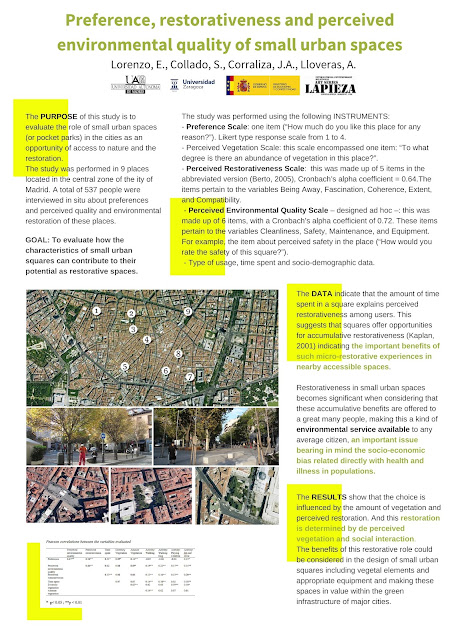Understanding the psychological and ecological functions of small urban green spaces is critical in contemporary city planning, particularly within highly built environments such as central Madrid. This study, carried out across nine urban squares with 537 participants, reveals the extent to which preference, perceived quality, and environmental restoration intersect within the microcosm of pocket parks. By applying validated psychometric tools—such as the Perceived Restorativeness Scale, Environmental Quality Scale, and Vegetation Scale—researchers capture nuanced layers of subjective experience tied to these spaces. Key findings highlight that time spent in these areas correlates strongly with perceived restorativeness, reinforcing Kaplan’s theory of accumulative micro-restoration. Notably, vegetation density, perceived safety, and social interaction emerged as central predictors of a square’s restorative value. These micro-ecosystems not only offer environmental services but play a crucial role in urban health equity, especially in socioeconomically diverse populations. The results advocate for a strategic reimagining of urban design—emphasizing quality over quantity—wherein even the smallest green nodes are equipped with vegetal richness, functional infrastructure, and social affordances. In this light, small squares become more than aesthetic amenities; they function as critical public health assets, catalyzing mental restoration through passive and active engagement. As urbanization intensifies, these findings push for policy frameworks that embed mental well-being into green infrastructure planning, especially in dense metropolitan cores.

ONGOING RESEARCH
URBAN GREEN AREAS IN THE CENTER OF THE CITY OF MADRID
> ENVIRONMENTAL PSYCHOLOGY / URBANISM / ART










